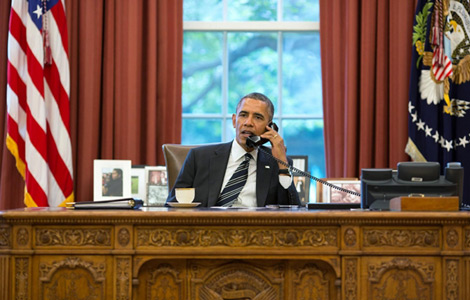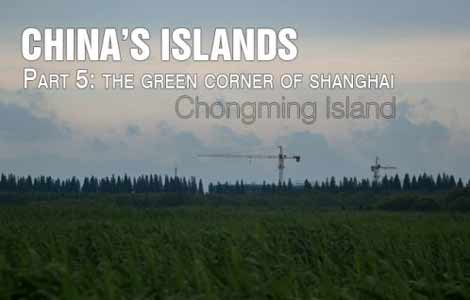Shanghai FTZ outlines roadmap of new reform
Updated: 2013-09-29 17:26
(Xinhua)
|
||||||||
BEIJING -- By officially launching its first free trade zone (FTZ) in Shanghai on Sunday, China is unveiling a new economic reform path in the post-financial crisis era.
Global observers have hailed the FTZ as the country's most significant reform push since the creation of Shenzhen Special Economic Zone more than three decades ago, and a "weather vane" for realizing the new leadership's vision for "season two" of China's economic miracle.
FOLLOWING WORLD TREND
Analysts say the Shanghai FTZ is a timely policy response to a global reform trend in the post-financial crisis era, especially in the emerging economies.
According to a Morgan Stanley research, only one tenth of the emerging markets in history managed to retain a growth rate of 5 percent within three decades. The emerging economies must reform or will get stuck in the "middle income trap."
Zhu Haibin, chief China economist at JP Morgan Chase & Co, said that setting up the FTZ in Shanghai gives a new definition to the relationship between the government and the market.
He noted that the policy will unleash a new round of growth potential through institutional innovation, rather than institutional preference, which will be the core of China's new economic reform.
EYEING FREE TRADE TALKS
The FTZ is also a starting point for China to get involved in the process of writing global trade rules, especially when several new free trade arrangements such as the Trans-Pacific Partnership (TPP), seemed to be bypassing China, the world's second largest economy.
Wang Yong, an expert from Peking University, said China is facing unprecedented challenges in global free trade setups with its absence from the TPP and the Transatlantic Trade and Investment Partnership.
Yves Tiberghien, associate professor of political science and director of the Institute of Asian Research at the University of British Colombia, Canada, recently told Chinese media that the Shanghai FTZ is part of China's overall strategy to counter the TPP led by the United States as the Chinese model continues to evolve and has the ability to generate further growth.
BUILDING FINANCIAL POWERHOUSE
Meanwhile, the Shanghai FTZ is also expected to make the Chinese city emerge as a future financial leader in Asia which will increase China's global economic influence in the long run.
According to the blueprint released, major financial reform measures like the RMB's convertibility under the capital account, market-set interest rates and cross-border use of the Chinese currency will be tested in the zone.
As British scholar Susan Strange puts in her theory, finance is one of the four dimensions of the structural power in the international political economy.
According to a recent report of the Bank for International Settlements, the RMB has joined the ranks of the most traded currencies for the first time in 2013, underlining the growing might of the country's economy.
Economists said the success of Shanghai FTZ pilot project will be key to enhance the RMB's influence on the international financial stage and whether China could upgrade its integration into globalization from trade to finance.

 A man with passion for China
A man with passion for China
 American batman soars through Chinese mountain
American batman soars through Chinese mountain
 Kenya mourns victims of Westgate mall attack
Kenya mourns victims of Westgate mall attack
 Home schooling popular with Chinese parents
Home schooling popular with Chinese parents
 Royal Mint coins to mark Prince George christening
Royal Mint coins to mark Prince George christening
 29th Golden Rooster Awards
29th Golden Rooster Awards
 China marks birthday anniversary of Confucius
China marks birthday anniversary of Confucius
 Obama, Iran's Rouhani hold historic phone call
Obama, Iran's Rouhani hold historic phone call
Most Viewed
Editor's Picks

|

|

|

|

|

|
Today's Top News
Special PLA medical squad starts service
US House votes to delay Obamacare
US spy agency mapped people's behavior -NYT
China won't seek hegemony, FM tells UN
China on yellow alert as Typhoon Wutip nears
Xi to visit attend APEC summit
East China cities debut 4G phones
Shanghai FTZ begins operation
US Weekly

|

|







